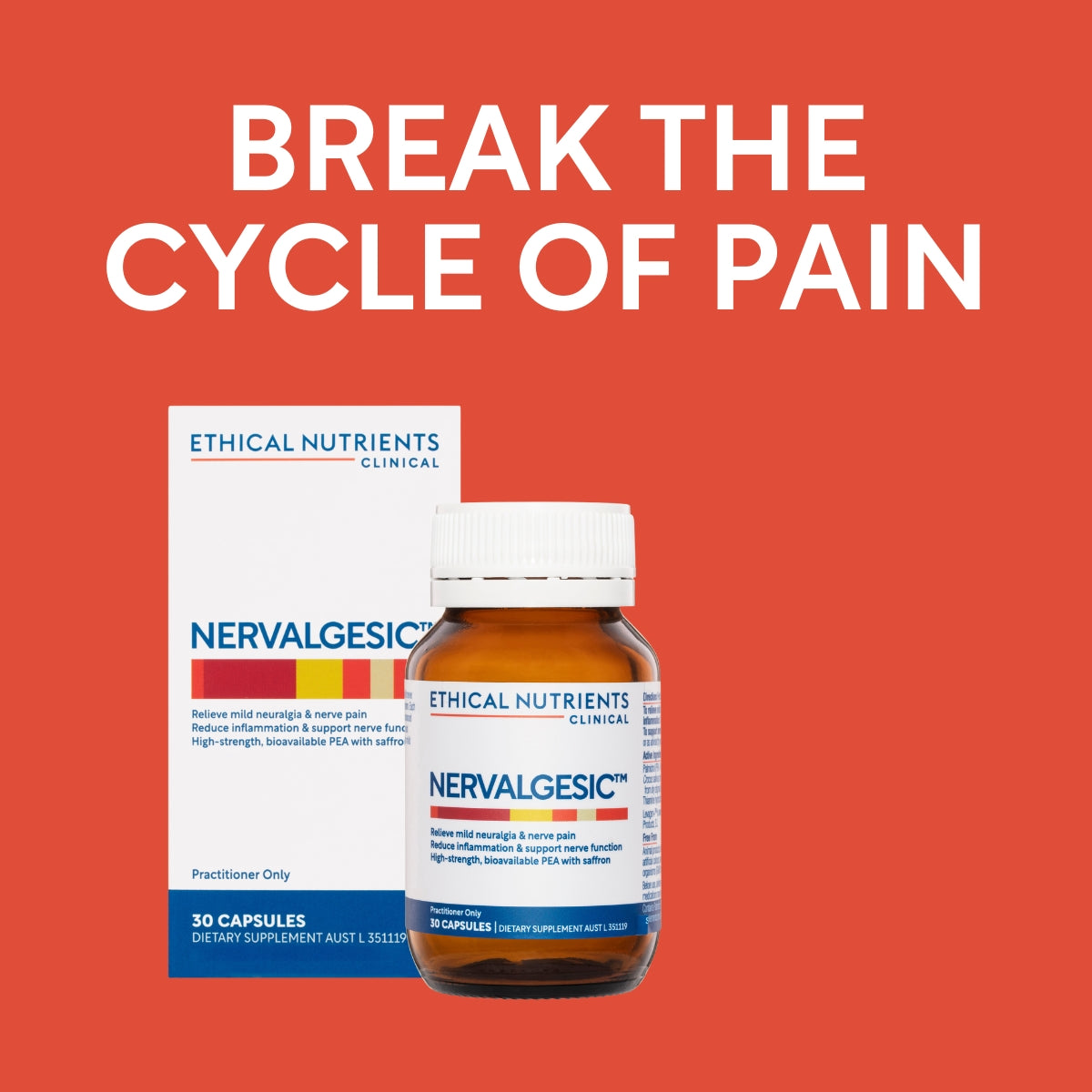What is Omega-3?
Omega-3 fatty acids are essential for the body at every stage of life. These nutrients found in fish oil play a key part in maintaining health, have been shown to sharpen the mind,¹ support mood balance,² maintain cardiovascular wellness³ and reduce pain.⁴ While the importance of Omega-3 is undeniable, approximately 80% of Australians do not meet the recommended dietary intakes.⁵ Interestingly, of the 20% of individuals who manage to consume enough, half of these individuals achieve this through taking an Omega-3 supplement.⁵
While taking fish oil is an excellent idea, there is a lot to learn when it comes to choosing a high-quality fish oil product. To help, we’ve shared three things to keep in mind when it comes to choosing an Omega-3 supplement to nourish and support your wellbeing.
1. Ensure each capsule has a high enough dose of Omega-3s.
When shopping for fish oil products, you might notice that some brands offer bulk quantities with a cheaper price tag. This is generally because these products are less concentrated, meaning that they offer far less active Omega-3 compounds, eicosapentaenoic acid (EPA) and docosahexaenoic acid (DHA), that the body uses to repair and heal. To help you determine if a fish oil product contains enough Omega-3, look for options that provide a minimum dose of 500mg of EPA and 200mg of DHA, which is the daily dose recommended by leading health organisations. ⁶
2. Look for fish oil made with the best manufacturing processes to give the strongest benefit.
Under the microscope, fish oil has a naturally unique structure. It features three fatty acids connected to a glycerol ‘backbone’, which is cleaved off to create a purified Omega-3 supplement during the manufacturing process. While this delivers a highly concentrated product (that is twice as strong as natural fish oil), it’s important that these fatty acids are reattached to their natural glycerol backbone through a process known as re-esterification.
This is because research shows when fish oil is restored back into its natural structure, it’s absorbed twice as effectively than fish oil that isn’t restored.⁷ This enables the body to absorb the most Omega-3 it can versus any other form of fish oil, allowing you to get the most benefit.⁸ The best way to find this out is to enquire whether the product contains ‘re-esterified fatty acids’ before you invest in a fish oil supplement.
3. Ask questions regarding what each brand does to ensure fish oil quality.
Fish oil supplements that have not been sourced from a quality supplier often contain higher amounts of contaminants such as heavy metals and pesticides, and/or higher levels of oxidation (rancidity). Oxidation causes an unpleasant fishy odour and taste, reduces fish oil’s effectiveness⁹ and may even be harmful to your health.
To ensure the highest level of quality and purity, Ethical Nutrients ensures that all Omega-3 products undergo a rigorous purification processes. This ensures our products are free from contamination of any plastic residues and over 200+ pesticides. Following this, we perform product analysis to confirm undetectable levels of heavy metals, pesticides, and oxidation in every batch – ensuring that our omega-3 is of the highest quality to support health and wellbeing.
Feel nourished and supported with a quality Omega-3 supplement.
Wonderfully beneficial in many ways, High-Strength Omega-3s offers essential resources to provide a variety of benefits to your brain, eyes and heart, also helping in pain management. Ethical Nutrients range of re-esterified fish oil, provides a high quality, easily absorbed source of Omega-3 manufactured with cutting edge technology to ensure purity. By choosing Ethical Nutrients, you can trust in receiving the benefits of Omega-3 to enhance your overall wellbeing.
References
¹ Yurko-Mauro K, Alexander D, Van Elswyk M. Docosahexaenoic acid and adult memory: a systematic review and meta-analysis. PLoS One. 2015;10(3):1-18. doi: 10.1371/journal.pone.0120391.
² Mozaffari-Khosravi H, Yassini-Ardakani M, Karamati M, Shariati-Bafghi SE. Eicosapentaenoic acid versus docosahexaenoic acid in mild-to-moderate depression: a randomized, double-blind, placebo-controlled trial. Eur Neuropsychopharmacol. 2013;23:636–644. doi: 10.1016/j.euroneuro.2012.08.003.
³ Harris WS, Tintle NL, Etherton MR, Vasan RS. Erythrocyte long-chain omega-3 fatty acid levels are inversely associated with mortality and with incident cardiovascular disease: The Framingham Heart Study. Journal Clin Lipidol. 2018 May 1;12(3):718-27. doi: 10.1016/j.jacl.2018.02.010.
⁴ Calder PC. Omega-3 fatty acids and inflammatory processes. Nutrients. 2010 Mar;2(3):355-74. doi: 10.3390/nu2030355.
⁵ Meyer B. Australians are not meeting the recommended intakes for omega-3 long chain polyunsaturated fatty acids: results of an analysis from the 2011–2012 national nutrition and physical activity survey. Nutrients. 2016 Mar;8(3):111. doi: 10.3390/nu8030111.
⁶ EFSA Panel on Dietetic Products, Nutrition and Allergies (NDA).Scientific Opinion on the Tolerable Upper Intake Level of eicosapentaenoic acid (EPA), docosahexaenoic acid (DHA) and docosapentaenoic acid (DPA). EFSA J. 2012 Jul;10(7): 2815-63. doi:10.2903/j.efsa.2012.2815
⁷ Dyerberg J, Madsen P, Møller JM, Aardestrup I, Schmidt EB. Bioavailability of marine n-3 fatty acid formulations. Prostaglandins Leukot Essent Fatty Acids. 2010;83(3):137-141. doi:10.1016/j.plefa.2010.06.007
⁸ Neubronner J, Schuchardt JP, Kressel G, Merkel M, von Schacky C, Hahn A. Enhanced increase of omega-3 index in response to long-term n-3 fatty acid supplementation from triacylglycerides versus ethyl esters. Eur J Clin Nutr. 2011;65(2):247-254. doi:10.1038/ejcn.2010.239
⁹ Rundblad A, Holven KB, Ottestad I, Myhrstad MC, Ulven SM. High-quality fish oil has a more favourable effect than oxidised fish oil on intermediate-density lipoprotein and LDL subclasses: a randomised controlled trial. Br J Nutr. 2017 May;117(9):1291-8. doi: 10.1155/2013/464921.






